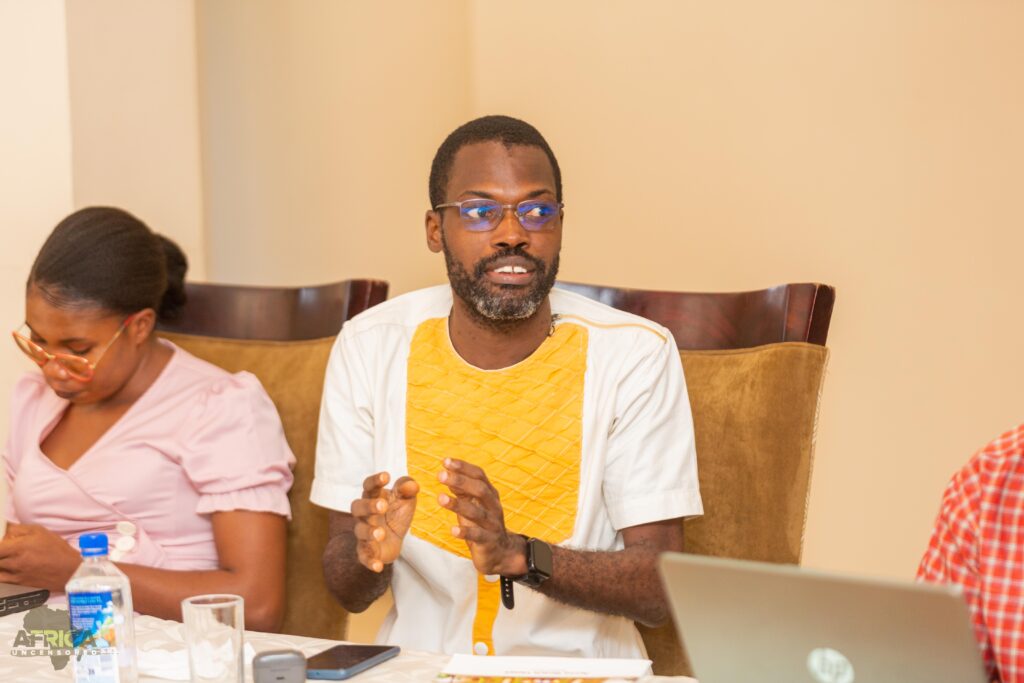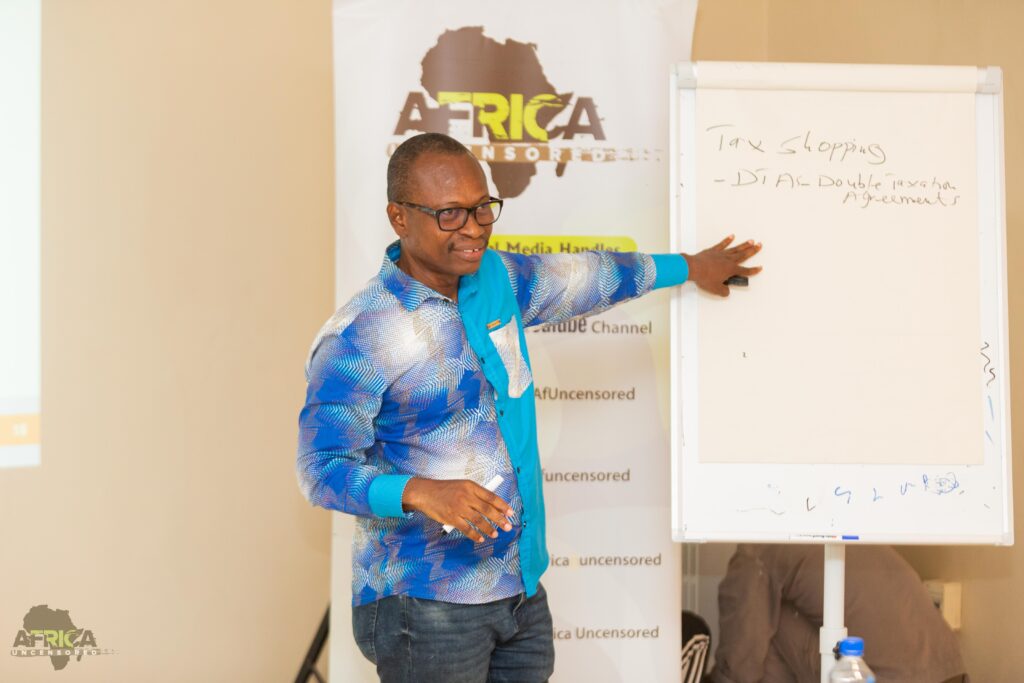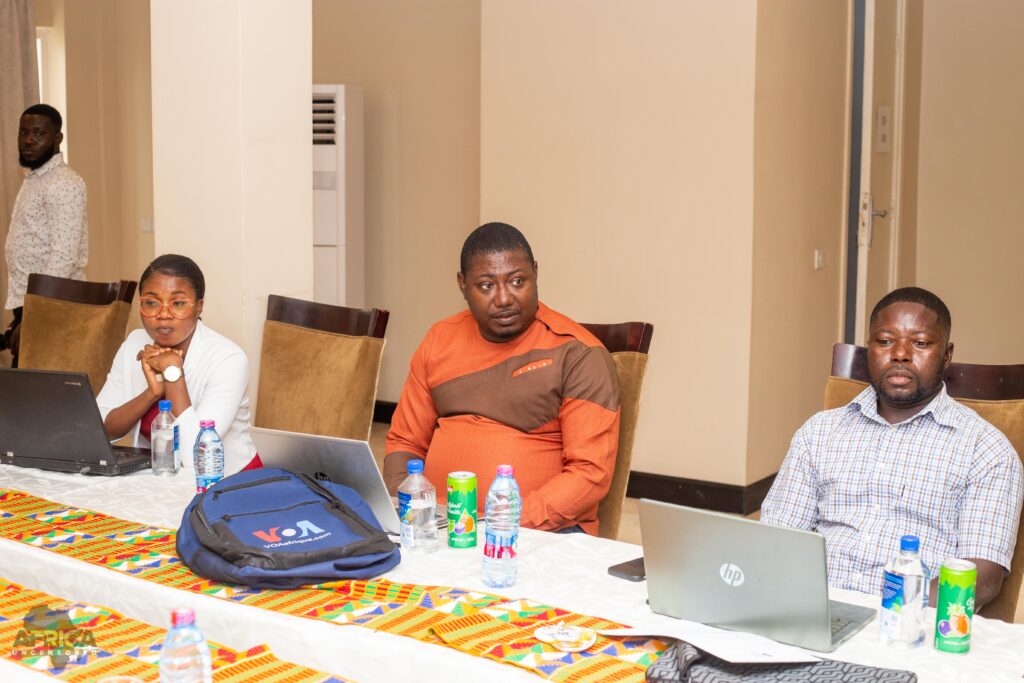Ghana editors trained in investigating IFFs under Thompson Reuters Foundation Programme

Some editors in Ghana have been trained to acquire knowledge and skills in investigating illicit financial flows (IFFs). The training was also aimed at enabling the editors to have the skills to work with their reporters in the subject.
The training held for three days in Accra under the Thompson Reuters Foundation Wealth of Nations Programme was executed by the Nairobi-based investigative journalism organisation, Africa Uncensored.
The facilitators were Eric Mugendi and Thomas Mukhwana, both of Africa Uncensored, and Emmanuel K Dogbevi, the Executive Director of NewsBridge Africa, the Accra-based journalism training organisation, as lead trainer.
The workshop highlighted the crucial role of investigative journalists in uncovering financial crimes, with a focus on landmark investigative projects such as the Pandora Papers and other leaks that have provided unprecedented insight into global corruption.
According to the African Union Commission (AUC), about $30 billion worth of gold is smuggled out of the continent every year; African countries give out as much as $220 billion as tax incentives to corporations that could be illicit because public officials might have been bribed to grant the incentives.
The AUC adds that some $275 billion annual outflows from Africa is through profit shifting by companies.
Additionally, the AUC notes that commercial and tax related activities account for 65 per cent of illicit financial flows in Africa, while crime accounts for 10 per cent and corruption accounts for 5 per cent.
Other studies show how African countries are losing money through various means that constitute illicit financial flows, including through trade misinvoicing and tax avoidance.

The enormity of the impacts of IFFs on African countries makes the need to build capacity of agencies including the media to combat the situation even the more dire.
Some of the participants shared their thoughts and experiences after the training.
“I have always had a different view of Illicit Financial Flows. However, the training has opened my eyes about the canker. My view on IFFs has been on anything related to corruption in a country. However, I now understand that IFFs involve the illegal transfers of money and assets from one country to the other. This is mostly done to avoid paying taxes (tax avoidance) or money laundering,” says Joshua Assah the Editor of A1 Radio.
“I hope more training sessions can be held to deepen the capacity of newsrooms in financial crime reporting,” he said.
For Selorm Gborbidzi of The News Centa, the training brought to his realisation the task ahead. “It was an eye opening three days. The most important take away was the enormity of the task, considering the nature of illicit financial flows and how to report them,” he said. Adding that the training exposed him “to how cleverly and intricately woven the world of illicit financial flows is. Even more telling was the enormity of the work it would take if we, as media, are to unravel these threads.”
On his part, Isaac Aidoo, the Editor of the High Street Journal expects more training in investigating IFFs.
“I hope more training sessions can be held to deepen the capacity of newsrooms in financial crime reporting,” he said.
Aidoo said some of the most significant takeaways from the workshop were the deep dive into key concepts such as shell companies, shelf companies, tax havens, and beneficial ownership structures.
“These definitions are critical for investigative journalism, especially when exposing hidden financial networks and understanding how illicit financial flows operate. The workshop highlighted the crucial role of investigative journalists in uncovering financial crimes, with a focus on landmark investigative projects such as the Pandora Papers and other leaks that have provided unprecedented insight into global corruption. The calibre of facilitators like Mr Emmanuel Dogbevi was impeccable and he for one did justice to his sessions,” he said.

Aidoo further stated that he has learned how to leverage the knowledge he has acquired to enhance editorial oversight and improve the depth of financial crime reporting.
“The training has strengthened my capacity as an editor by stressing the importance of data-driven journalism, cross-border collaboration, and verifying financial information,” he added.
The training overall is designed to build the capacity of journalists and editors across Africa to improve their coverage and investigation of illicit financial flows.
By Peter Mensah
